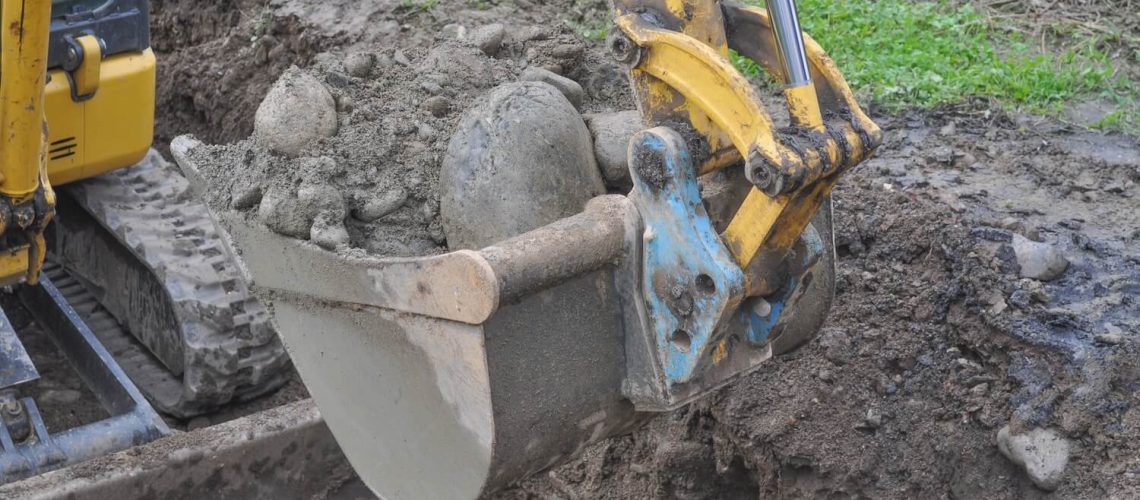When it comes to construction, the most crucial elements are often those that lie beneath the surface. Footer excavation, though unseen, forms the foundation upon which everything else is built. Expert footer excavation ensures the stability and longevity of a structure, preventing costly repairs and structural failures. In this article, we’ll delve into the importance of expert footer excavation, exploring its role, techniques, and the impact it has on the overall success of construction projects.
Understanding Footer Excavation
Footer excavation involves digging trenches to create the footers (or footings) that support the foundation of a building. These footers are typically made of concrete and are positioned below the frost line to prevent shifting during freeze-thaw cycles. The depth, width, and reinforcement of footers depend on various factors including soil type, building load, and local building codes.
Footers distribute the weight of the structure evenly across the soil, preventing uneven settling which can lead to cracks and structural damage. They anchor the building, providing stability and support. Properly designed and constructed footers are essential for the integrity and safety of any building.
The Importance of Expert Footer Excavation
Ensuring Structural Stability
The primary reason for expert footer excavation is to ensure the structural stability of a building. Incorrectly excavated or poorly constructed footers can lead to uneven settling, causing cracks in walls, floors, and the foundation itself. This can compromise the safety of the structure and lead to expensive repairs.
Adhering to Building Codes
Building codes and regulations are in place to ensure safety and standardization in construction. Expert excavation professionals are knowledgeable about these codes and ensure that footers are constructed to meet all legal requirements. Non-compliance can result in fines, delays, and even the need to redo the work.
Handling Complex Soil Conditions
Different soil types require different excavation techniques. For instance, clay soils can expand and contract with moisture, while sandy soils may shift and settle. Expert excavators assess the soil type and adjust their techniques accordingly, ensuring a stable foundation regardless of the soil conditions.
Techniques in Footer Excavation
Site Assessment and Planning
Before excavation begins, a thorough site assessment is conducted. This includes soil testing, surveying, and planning the excavation process. A detailed plan ensures that the excavation is carried out efficiently and safely, taking into account any potential obstacles or challenges.
Precision Digging
Precision is key in footer excavation. The trenches must be dug to the exact specifications required for the footers. This involves measuring and marking the site accurately, using specialized equipment such as laser levels and trenchers to achieve the desired depth and width.
Reinforcement and Concrete Pouring
Once the trenches are dug, reinforcement is added to provide additional strength to the footers. This typically involves placing steel rebar in the trenches before pouring the concrete. The concrete must be mixed and poured correctly to ensure it sets properly and provides the necessary support.
Challenges in Footer Excavation
Dealing with Underground Obstacles
One of the common challenges in footer excavation is encountering underground obstacles such as rocks, old foundations, or utility lines. Expert excavators are skilled in handling these obstacles, using techniques such as rock breaking, careful digging, and coordinating with utility companies to ensure safe and efficient excavation.
Weather and Environmental Factors
Weather conditions can significantly impact footer excavation. Rain can lead to waterlogged soil, making it difficult to dig and pour concrete. Freezing temperatures can cause the ground to harden. Expert excavators plan their work around the weather, using techniques such as dewatering and frost protection to mitigate these challenges.
Ensuring Worker Safety
Excavation is a high-risk activity, with potential hazards including trench collapses, equipment accidents, and exposure to harmful substances. Ensuring worker safety is paramount. Expert excavation companies follow strict safety protocols, providing training and equipment to protect their workers.
The Impact of Expert Footer Excavation on Construction Projects
Longevity of the Structure
The quality of footer excavation directly impacts the longevity of the structure. Properly excavated and constructed footers prevent settling, cracking, and other issues that can compromise the integrity of the building over time. This results in a durable and long-lasting structure.
Cost Savings in the Long Run
Investing in expert footer excavation can lead to significant cost savings in the long run. By ensuring the foundation is stable and secure from the outset, the risk of costly repairs and structural damage is minimized. Additionally, adhering to building codes prevents potential fines and the need for rework.
Enhanced Property Value
A well-built foundation enhances the overall value of the property. Potential buyers and investors are more likely to trust and invest in a property that has a solid foundation. Expert footer excavation contributes to this trust, providing assurance of the building’s quality and durability.
Choosing the Right Excavation Professionals
Selecting the right excavation professionals for your project is crucial to ensure the quality and stability of your structure. The process involves careful consideration of several factors, from the experience and expertise of the company to their licensing, insurance, and reputation. Here’s a more detailed guide to help you make an informed decision.
Experience and Expertise
Experience is a key indicator of an excavation company’s ability to handle various challenges that may arise during the project. Companies with a long history in the industry have likely encountered a wide range of soil conditions, weather impacts, and underground obstacles. This experience equips them with the knowledge and skills to manage these issues efficiently.
Evaluating Expertise
- Project Portfolio: Review the company’s portfolio to see the types of projects they have completed. Look for projects similar to yours in scope and complexity.
- Technical Skills: Ensure the company is proficient with the latest excavation techniques and equipment. Modern technology can significantly improve precision and efficiency in excavation work.
- Specialization: Some companies specialize in specific types of excavation (e.g., residential vs. commercial). Choose a company that specializes in the type of project you are undertaking.
Licensing and Insurance
Licensing is a critical aspect that validates the professionalism and compliance of an excavation company. Licensed contractors have met the necessary requirements set by regulatory authorities, ensuring they adhere to industry standards and best practices.
Verifying Insurance
- Liability Insurance: This protects you from financial loss in case of property damage or accidents during the excavation process.
- Workers’ Compensation Insurance: This covers medical expenses and lost wages for workers injured on the job, ensuring they are protected and you are not liable.
- Bonding: Some companies are bonded, meaning they have secured funds set aside to cover any claims against them. This provides an additional layer of financial protection.
Client References and Reviews
Client references and reviews offer valuable insights into an excavation company’s reliability and quality of work. They provide a real-world perspective on the company’s performance, professionalism, and customer service.
Steps to Evaluate Client Feedback
- Ask for References: Request a list of recent clients you can contact. Speaking directly with past clients can give you a clear idea of what to expect.
- Online Reviews: Check online review platforms like Google, Yelp, and industry-specific forums. Pay attention to both positive and negative feedback.
- Case Studies: Some companies provide detailed case studies of their previous projects. These can give you an in-depth look at their approach and problem-solving capabilities.
Transparent Pricing
A reputable excavation company should provide a detailed and transparent cost estimate. This should include all aspects of the project, such as labor, materials, equipment usage, and any potential additional costs.
Comparing Bids
- Multiple Quotes: Obtain quotes from several companies to compare pricing and services.
- Scope of Work: Ensure each quote includes a comprehensive scope of work to understand what is covered.
- Hidden Costs: Be wary of unusually low bids, as they may not include essential aspects of the project, leading to unexpected expenses later.
Conclusion
Expert footer excavation is a critical component of any construction project. It lays the foundation for a stable, durable, and safe structure. By ensuring precise digging, proper reinforcement, and adherence to building codes, expert excavators play a vital role in the success of construction projects. Choosing the right professionals for footer excavation not only ensures the longevity of the structure but also provides peace of mind, knowing that your building is built on a solid foundation.
In conclusion, the importance of expert footer excavation cannot be overstated. It is the unseen hero of construction, providing the necessary support and stability for buildings to stand the test of time. Investing in expert excavation services is an investment in the future of your structure, ensuring safety, durability, and cost savings for years to come.

